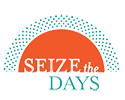The Duty of the Cure
Jonny Imerman was diagnosed with testicular cancer. He got through his treatment surrounded by family, but he wanted to make sure nobody had to go through that alone. That’s why he started Imerman Angels.
Listen
My name is Jonny Imerman and I’m the founder of Immerman Angels. It’s a peer one on one cancer support program where the goal is that nobody fights cancer alone. my title is the chief mission officer because in my mind it’s all about the mission and it’s all about the people and this network needs to grow. I am a two time testicular cancer survivor. I went through cancer at 26 years old, and again at 28 years old.
I had the left testicle removed. That was step one. then I went right into banking sperm. Pretty good chance I was going to be sterile. after that, I had a port inserted in my left arm, a passport. Then I went right into chemo. And did bleomycin, cisplatin for about four and a half, five months.
Was totally clean. Scans were clear. Everything’s looking good. All my levels were down. about a year later, as I’m building back up and getting back into life, I had four tumors that they found in a random CAT scan behind my kidneys. I went back in through an 11 inch surgery, vertically through my stomach, moved my organs out of the way, cut the four tumors out, put the organs back in, stitched the stomach muscle, and then 60 staples vertically up and down.
it was an amazing experience, It was a big battle in your 20s that most kids in their 20s are not really thinking about. the number one thing it taught me was how am I going to give back? I prayed every morning and every night and I said, if I live and I get my life back, I will not forget those who follow and I’ll do something to give back.
I never dreamed I would do it full time and it would become a life’s mission, but such is life. I knew right away when I was going through treatments that the only missing piece for me of everything in my treatment was the absence of a survivor like me, the absence of a friendship. And I had the best mother in the world.
She was there every minute, every chemo, every surgery. My brothers were great, my friends were great. I had ten people around me during chemo every day. So I was never isolated in terms of my family. Presence. People being there. But where I was isolated, was I looked around at all these people and I looked in their eyes and no one could look back into my eyes and say I get exactly how you feel because I’ve been exactly where you’re going.
And you realize quickly that, this is such an easy thing. When I’m done, I can be that for somebody else who’s going through the same cancer. And I knew it was the duty of the cure. You gotta give back. How are you going to give back? That piece, I know I could. I was a cancer survivor, I’d had the surgeries, the chemos, I’ve dealt with the mental battle, I had a blood clot during chemo, I’ve had some crazy side effects.
all that knowledge, and all the times I’ve googled and read about my cancer, and all the questions I’ve asked my doctors, I’ve spent an education the last two and a half years, that story, if not given back, is essentially wasted. And I just believe strongly that every survivor should share it.
It’s the duty of the cured. Give it back to help somebody else out today who’s just starting their journey. After my last surgery and chemo I went back into the clinic and started walking into rooms after work, just as a volunteer, I thought it was so important I would walk into a room and say, Oh, you’re a young guy, you’re 25, you got leukemia.
I just went through testicular cancer, tell me what’s going on with you. It was an instant friendship. These people look at you and say wait, you’re a cancer survivor and you’re in your 20s, too? Whoa, you’re the only young guy here. That’s awesome. What did you have?
And did you get this, funky rash on your arm? And did you get mouth sores? And did you get this bad taste in your mouth from chemo? And you had a blood clot. What’s all that about? an hour later, you’re hugging it out. And your instant friends and all the guys that are in treatment want is just to know you and hear your story.
Pick your brain, but most importantly have your friendship someone who really gets it. they don’t have to hold anything back because they realize you get it. You’ve done it. You’re both survivors. I did that for a few years and over time I really realized there’s such a scalable model.
Survivors in New Mexico should be doing the same thing. Survivors in Toronto, Survivors in London, Survivors in Afghanistan, Israel, everywhere. And so we started recruiting Survivors and meeting more Survivors. And my mom started meeting all these Survivors. And she’s like, your friends are like angels.
They just want to give back. They just want to motivate. They want to help people. They’re so selfless. They’re amazing people. You should call this Immerman Angels. These angels, of course, join the network. We went from 5 to 25 to 125 to today over 4, 000 cancer survivors of all different types of cancer.
And every day people can call to meet an angel. And that’s what Immerman Angels does every day. You got cancer, you’re alone, you’re isolated, you’re looking in everyone’s eyes, but no one really gets how you feel. Call us, reach out to us, we’ll find you somebody who’s a great guy, or a great girl, who’s your age, beat your cancer at your stage with identical treatments, and says, look, I crushed it, and I’m back in the gym, and three years ago, I beat it, and I’m back, and I’m stronger, and I’m healthy, and I’m happy, keep your chin up, life will improve, it gets better.
And the hope that we survivors can provide, I think, probably is the cornerstone, you know, that we are still here, and we’re happy, and we’re living great lives. And it shows people in treatment that it’s possible, it’s been done before, and they can do it. We’re proving to them they can do it. And that’s what we do every day, one on one cancer support.
no one faces cancer alone. And it also, which I love about what we do, it gives the survivors the opportunity to find meaning and purpose and all the crazy shenanigans and treatments they go through, they’ve earned it. your story is a gift and give that gift back to somebody.
And if you do, there’s meaning and purpose. it wasn’t for not, it wasn’t that you missed out because all your friends were, going on dates or with their careers or to grad school you have a gift, it’s just looking at it from the right angle.
we want every survivor to look at it that way. There’s a reason we’re here. Share your story and give it back. And we also help people that are have kids. Let’s say a four year old gets leukemia. The parents are isolated. Let’s match the parents up with another set of parents that can say, Guess what?
My ten year old little girl beat leukemia when she was four, six years ago. We’re living proof that kids can do this. Kids beat leukemia. Your kid can do this. We’ll tell you everything we know about it. call us when you need us. We’ll be here as friends and empathizers who really understand.
In addition, you get another call at Emberman Angels, which happens more than you’d think. someone that’s 40. Or let’s say even someone’s 30 calls us from New York and says I’ve been married for four years and my wife just died of colon cancer I am lost and confused and alone and disillusioned about life.
And we say, listen, we know a guy you should know. You should know a guy like Dave Gould, who’s 39. when he was 30, the same thing happened to Dave. Nine years later, he’s found peace in life. he’s not a hundred percent happy, but Dave will tell you he’s 95 percent of the way there.
To me, that’s making the world a better place. Something that lives well beyond your life. it gives me a lot of satisfaction knowing that if I were to be hit by a bus outside, later today, this mission is going to serve, and deliver, regardless.
It’s much bigger than any one person. it doesn’t really matter. The survivors are there. There’s thousands of us. We’re in over 60 countries. It’s going to grow. It’s going to continue. It’s going to snowball. it gives me a lot of satisfaction that we’re able to do this, that survivors care.
Survivors really are the lifeblood of this organization. They care and want to give back. But again, the power is in the team, no one survivor is bigger than the team I’m just one equal on a team of thousands, together, united, that’s how we’re going to fill these cracks in the cancer world, make the cancer world a better place.


